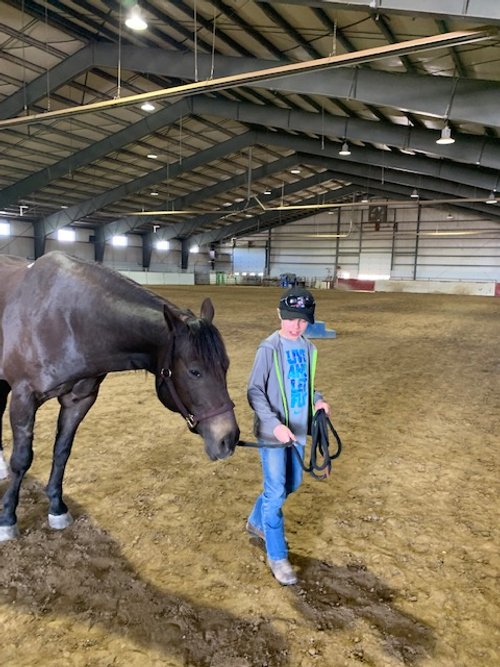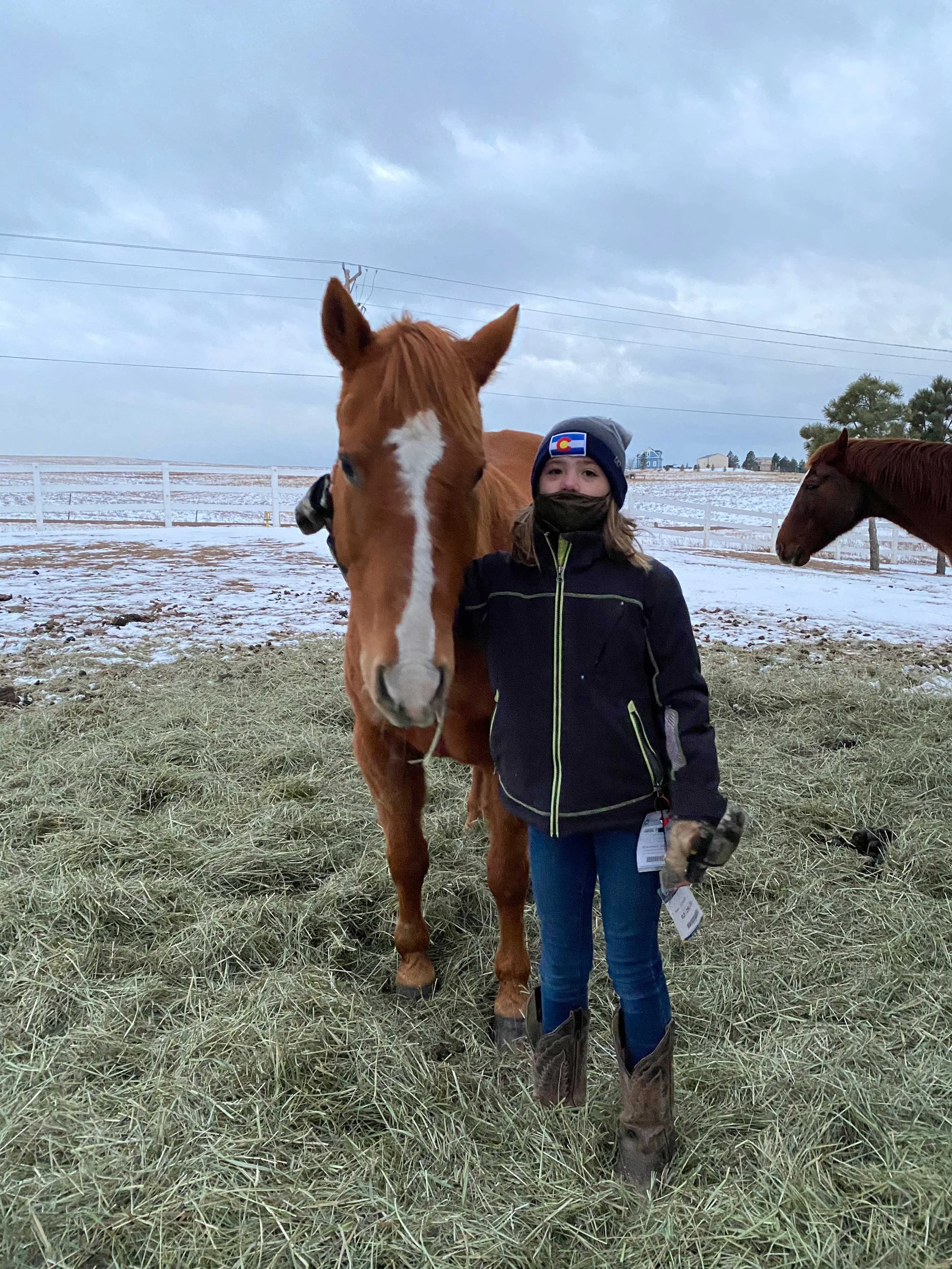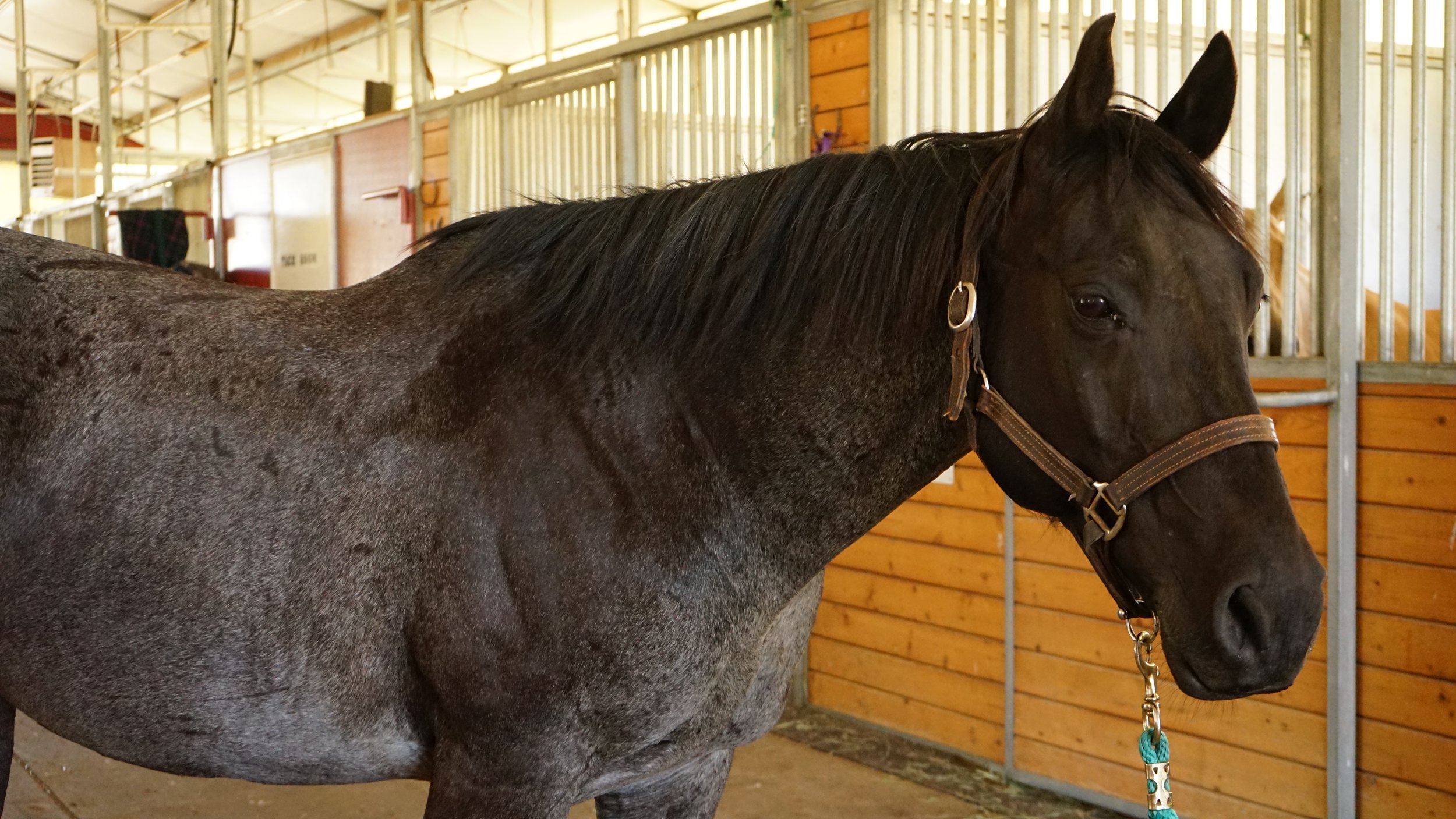Equine-Assisted Learning
One of the ways we serve the community is through the services and support offered through the Flying Horse Foundation Equine-Assisted Learning Program, which operates on the beautiful Flying Horse Ranch in Douglas County – one of the finest cattle and equestrian ranches along the Colorado Front Range. With its 39,000 square foot indoor riding arena, at-risk and underserved individuals are able to learn life skills year-round at no cost. Our Equine-Assisted Learning (EAL) program has a social and emotional functionary focus. We utilize a curriculum driven program to increase functions in five areas, we call C.A.R.E.S.
C.A.R.E.S.
Flying Horse Foundation seeks to improve student wellbeing through implementation of our C.A.R.E.S. curriculum which focuses on the attributes of connection, awareness, resilience, empathy and self-regulation. Our curriculum content relies heavily upon the well-researched principles of the Search Institute’s 40 Developmental Assets, and trauma informed literature and the University of Denver’s Institute of Human-Animal Connection.
c - connection
We utilize many different activities to increase the connection between students and horses. For instance, they are learning how to read and respect non-verbal cues from a horse while doing tasks such as grooming, tacking, or a mounted activity. Also, participating in problem-solving activities that build on connection and skill, which help transition from connecting with the horses to connecting with their peers and adults
a - awareness
Awareness goes hand-in-hand with connection. Students are taught how their body language, behavior, and energy level have an impact on those around them (horses and people.) With the assistance of horses and other students, students will learn to become aware of how their bodies feel when they are acting in a particular way (ex. anxious energy vs. calming energy.) Some of these activities designed are to encourage students to have to rely on cues from the horses or other students to complete the activity.
r - resilience
As students become more aware of their bodies and better able to identify their feelings, we begin to build resilience. As students are encouraged to stick with a more challenging activity with the horses, despite the discomfort and stretch their tolerance, they will become more resilient. The students will also build resilience as they participate in activities with others that encourage the student to learn about different perspectives as discussing their views appropriately.
e - empathy
Learning to respect the view of others (horse or human) is a way to begin building empathy. Students will engage in many activities regarding empathy as they learn about different forms of communication. They will learn how to adapt their behaviors to benefit the horses. Learning to adapt, will teach them how to be stewards (a person whose responsibility it is to take care of something) to the horses by understanding the "why's" of the horses' needs. These skills will then be encouraged to shift to other relationships within the group as students learn to help one another in activities.
s - self-regulation
When students begin to understand and empathize with others, they will also learn how to become self-aware. Not only their own needs but how they may need to regulate themselves to be supportive to others. Through activities with the horses involving skills such as mindfulness, the students will begin to see how they can impact others (horses and humans alike) and how they can then self-regulate to better support those around them.
Learn more about the EAL curriculum
Find out more information about the curriculum and session structure you can expect if you participate in the Flying Horse Foundation’s Equine-Assisted Learning Program.
THE ARENA
The Flying Horse Foundation utilizes this 39,000 square foot arena for equine activities and lessons allowing at-risk-individuals to be able to learn life skills year-round at no cost.
Equine-assisted learning Veterans Groups
The Flying Horse Foundation is always striving to help those around us. Read more about our new Veterans Groups and use the contact button below to find out more information today!
SIGN-UP PROCESS
STEP 1: CHECK YOUR CHILD’S ELIGIBILITY
Click the button below to find out if your child qualifies. If your student meets the criteria, you will be able to continue on in your sign-up process.
STEP 2: FILL OUT REQUIRED FORMS
To participate in Flying Horse Foundation’s Equine-Assisted Learning Program you will need to fill out several forms. Please be advised the required paperwork must be complete in order to be eligible to tour or register for FHF programs. All forms are strictly confidential, and the information provided will not be shared with anyone outside of the Flying Horse Foundation staff, facilitators, and volunteers.
STEP 3: SIGN UP FOR A TOUR OF THE FACILITY
Once you have filled out the necessary forms, you and your prospective student must schedule a time to come tour our facilities and learn more about our program. (Note: If you tour for one program, you do not need to tour again to participate in another program.)
STEP 4: SCHEDULE YOUR DATE AND SESSION TIME
Once you have attended a tour, we will determine if you will then be able to go online and schedule your student’s participation.
Please be advised that FHF’s highest priority is safety, as student/animal interaction is a core program component. As such, program participation is dependent upon a student safety assessment/review conducted by FHF staff. While we make every effort to include as many applicants as possible, program participation is not guaranteed.

















































